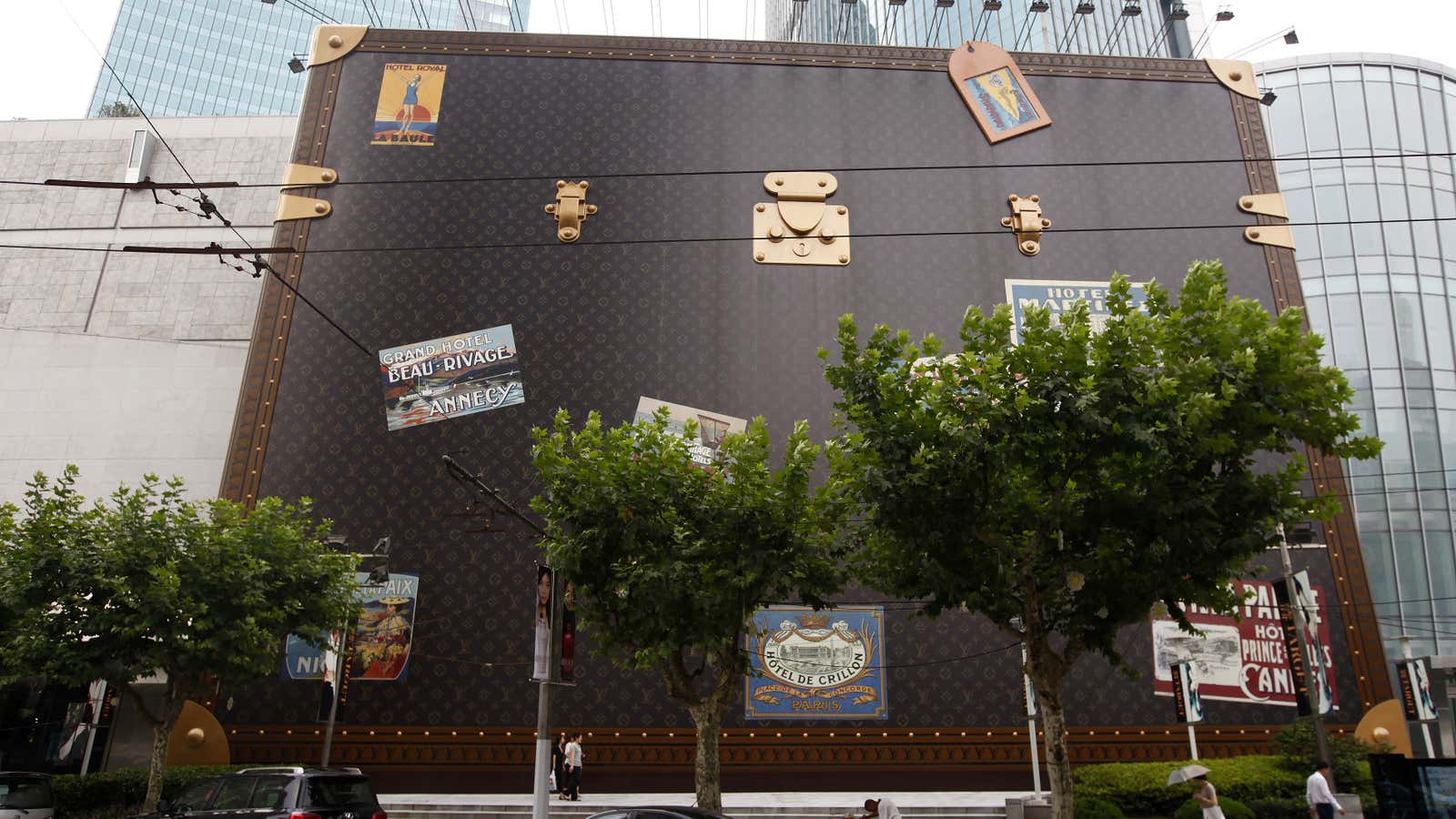Dom Pérignon, Christian Dior, Bulgari, TAG Heuer, De Beers, and Louis Vuitton—the most valuable luxury-goods brand in the world—all live under a single banner: LVMH. This French luxury company owns a whopping 70 brands, several among the world’s most prestigious. No wonder, then, that it’s considered a bellwether for high-end spending.
With an economic slowdown hitting China, whose citizens account for more than 30% of luxury spending globally, LVMH might be expected to worry. But according to CEO Bernard Arnault, it’s still optimistic.
“Analysts underestimate the Chinese economy,” Arnault said on Feb. 2, after LVMH reported very strong full-year earnings for 2015. “The fundamentals are good. Household spending is still increasing, and that’s important to us.”
LVMH said revenue climbed 16% to about €35.7 billion ($39.1 billion) for 2015, bolstered by good performance across categories and especially in its largest division, fashion and leather goods.
That doesn’t mean LVMH has been immune to China’s economic problems. The company acknowledged last quarter that China’s stock market plunge in August hurt its sales some. While sales grew nicely in 2015 in the US, Europe, and Japan, sales in Asia—mostly meaning China—were down.
Bain Consulting estimates the entire country’s luxury market shrank 2% for the year, hurt by economic trouble and an ongoing crackdown on corruption that has put a crimp in officials buying and giving expensive gifts.
Arnault made clear that he was thinking years ahead. “You have to be optimistic in the long term and pessimistic in the short term. That allows you to prepare for the worst,” he said (paywall). Looking farther out, many analysts do believe China’s spending on high-end goods will grow with the emergence of a sizable middle class in the country.
Arnault also expressed confidence in Hong Kong, which has been one of the most challenging environments for luxury, as tourism from the mainland slows. The downturn there is “cyclical,” he said and pointed to Hong Kong as “one of the high points in Asia and one of the drivers of our growth.” Not only is LVMH not closing shops there, it’s renovating its Louis Vuitton flagship.
LVMH has the benefit of a strong roster of brands to support it, including Louis Vuitton, which has been consistently excellent under the creative direction of Nicolas Ghesquière. Not every luxury company is performing as well. But LVMH’s strategy in China won’t be to forge blindly ahead. Rather, as Arnault emphasized, it will remain flexible. It will close stores when it makes sense to do so, but then it will also open new ones.
